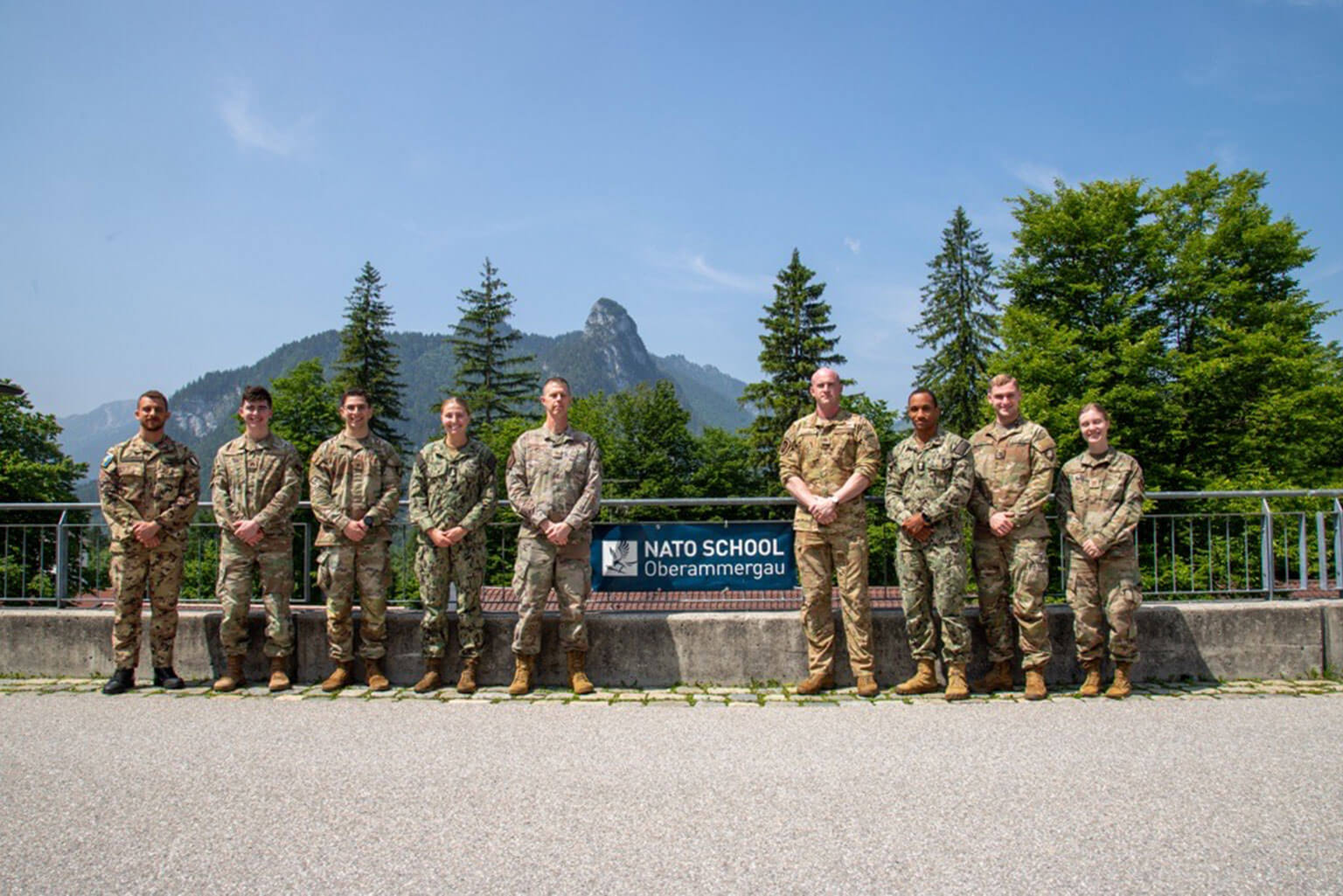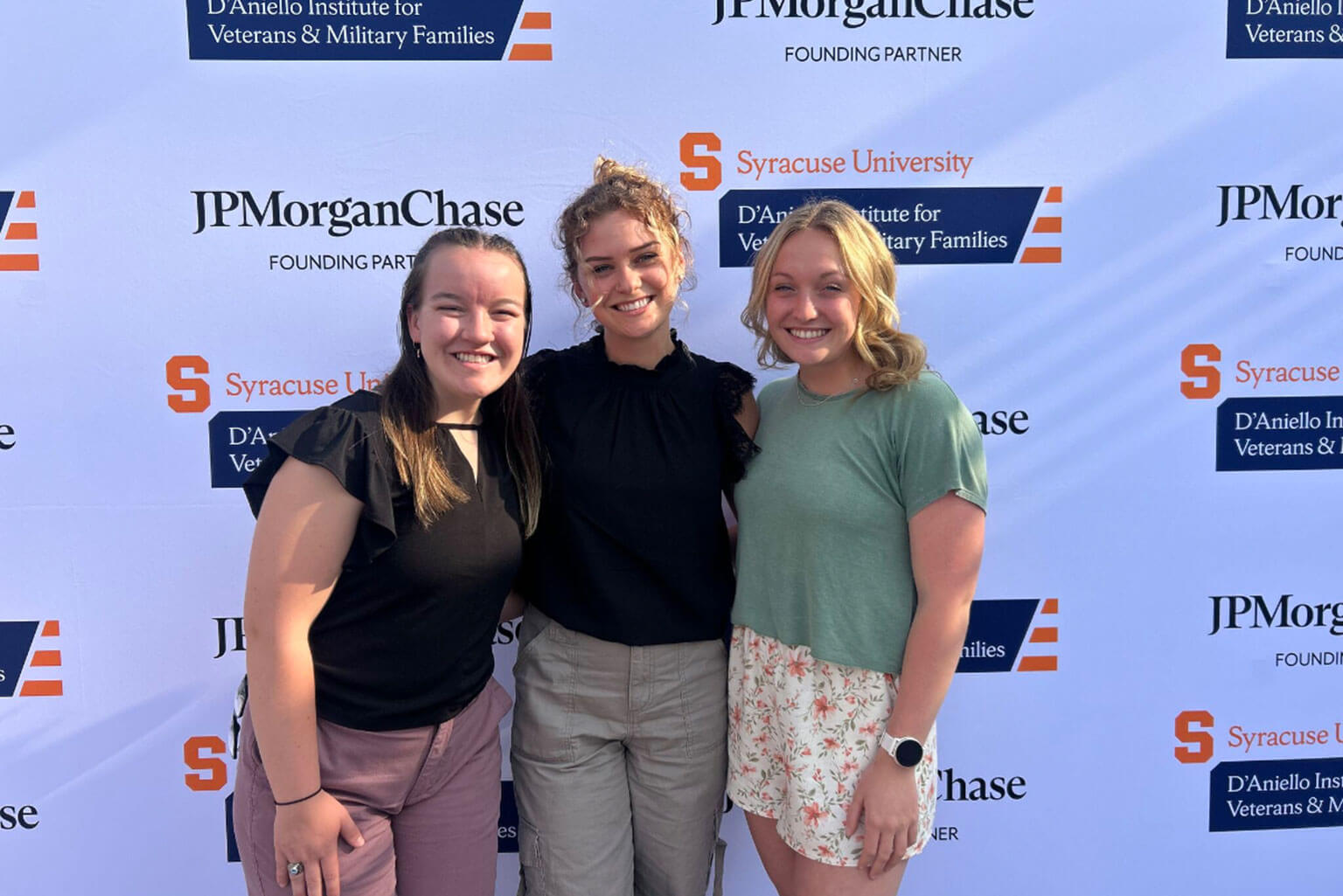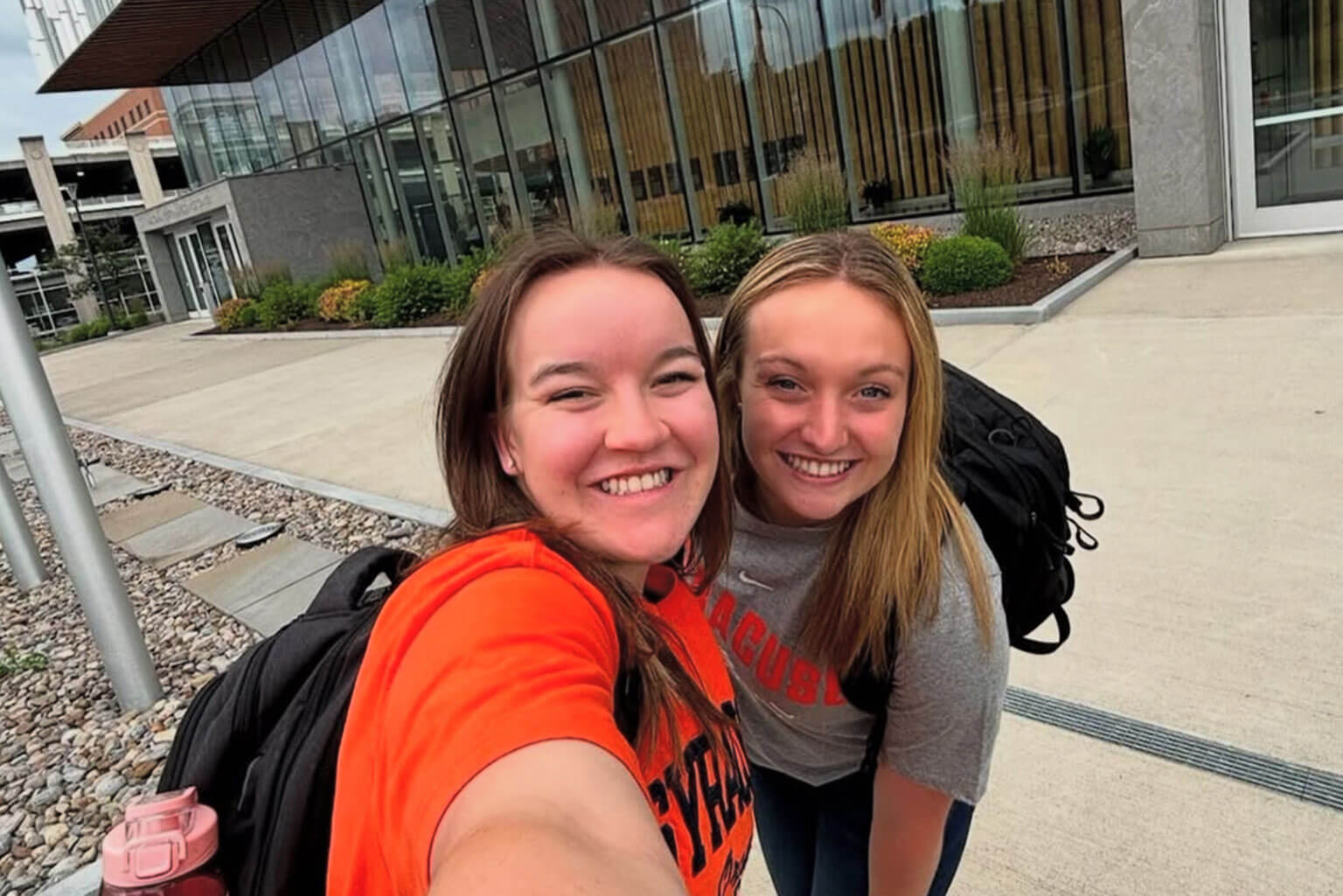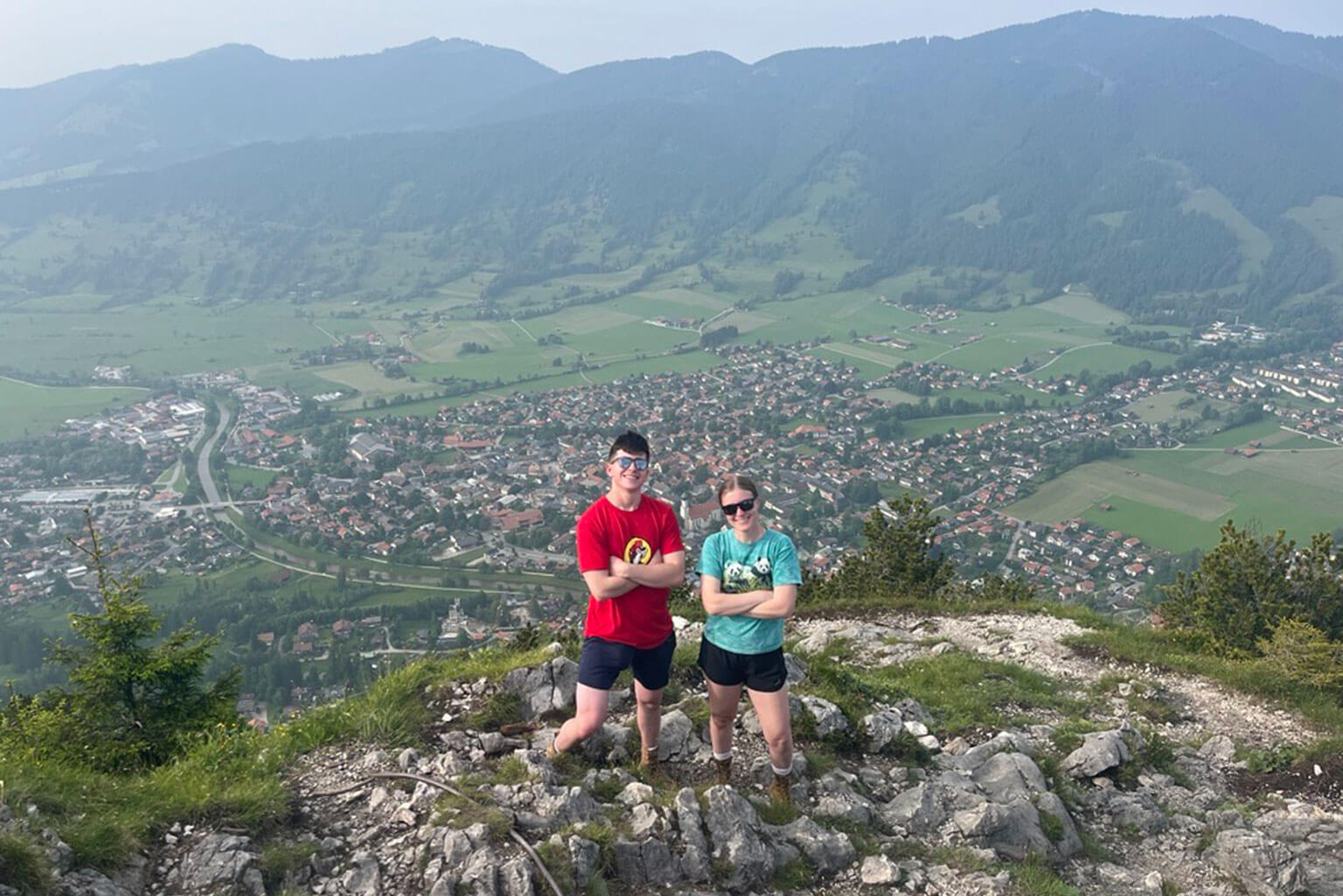CSRP 2025: taking research beyond the classroom

Cadet 2nd Class Michael Fays poses for a picture with fellow Cadet Summer Research Program participants at NATO School in Oberammergau, Germany, June 12, 2025. As part of the Cadet Summer Research Program, Fays completed both the NATO Instructor Course and the NATO Strategic Operations Planning Course. (Courtesy photo provided by Michael Fays)
By SSgt Michael Ward
U.S. Air Force Academy Strategic Communications
U.S. AIR FORCE ACADEMY, Colo. – More than 300 cadets participated in the Cadet Summer Research Program (CSRP), taking their research beyond the classroom and into real-world application.
The Academy maintains more than 260 national and international research agreements, strengthening its connections with private-sector leaders, government agencies and top-tier academic institutions. These partnerships give cadets access to advanced research facilities, equipment and mentorship.
CSRP 2025 sponsors include organizations such as the Library of Congress, NASA, NATO, U.S. Space Command, the White House, Amazon, Boeing, Cornell University, and Tesla.
Cadets are chosen based on academic performance, military performance, interest in scholarly inquiry and their overall U.S. Air Force Academy standing. To qualify as an eligible participant, cadets must not be on any form of probation. The program reflects the Academy’s emphasis on academic excellence, character development and leadership preparation.
CSRP 2025 offers immersive research experiences
Through the Academy’s research and development network, cadets conduct hands-on research and collaborate with various military and civilian institutions around the world.
CSRP is a high-impact academic practice nationally recognized model that enhances learning through real-world application. These immersive research experiences sharpen cadets’ critical thinking, deepen problem-solving abilities and build the adaptability needed to lead in complex operational environments.
“Each cadet has a unique experience based on their academic background, sponsor and project,” said Dr. Jana Weiner, CSRP Director. “All cadets have the opportunity to apply what they’ve learned to real-world problems. These experiences strengthen their development and prepare them to lead as future officers.”

Cadet 1st Class Scarlet Nation, left, program sponsor Ellie Huth, middle, and Cadet 2nd Class Sophie Kent, right, attend an Institute for Veterans and Military Families retirement ceremony at Syracuse University, Syracuse, New York, June 13, 2025. The Cadet Summer Research Program offers cadets hands-on experiences that sharpen critical thinking, adaptability and operational awareness. (Courtesy photo provided by Sophie Kent)
CSRP 2025 offers ‘valuable exposure’
Cadet 2nd Class Sophie Kent, a management major, participated in the Institute for Veteran and Military Families (IVMF) Bunker, sponsored by the Syracuse University IVMF. Her work focused on entrepreneurship education for veterans and service members transitioning to civilian careers.
“My CSRP experience at IVMF gave me valuable exposure to how the civilian sector supports the military, especially in areas like veteran transition and entrepreneurship,” said Kent. “Working in that professional environment pushed me to further adapt, communicate effectively and take initiative—all skills that will definitely carry over into my future role as an officer.”

Cadet 1st Class Scarlet Nation, left, and Cadet 2nd Class Sophie Kent, right, take a selfie outside the D’Aniello Institute for Veterans and Military Families at Syracuse University building, Syracuse, New York, June 18, 2025. Their Cadet Summer Research Program focused on entrepreneurship education for veterans and service members transitioning to civilian careers. (Courtesy photo provided by Sophie Kent)
CSRP 2025 provides collaboration opportunities
Cadet 1st Class Michael Fays spent two weeks in Oberammergau, Germany, where he attended the NATO School. He completed both the NATO Instructor Course and the NATO Strategic Operations Planning Course, collaborating with officers and enlisted members from all 32 NATO member countries.
“It was a super unique experience where we got to collaborate and interact with military members from around the world,” said Fays. “Learning how NATO operates and plans gave me a much broader perspective on international cooperation and strategy.”

Cadet 2nd Class Michael Fays and Cadet 2nd Class Audrey Neukomm hiked The Kofel while attending NATO School in Oberammergau, Germany, June 10, 2025. As part of the Cadet Summer Research Program, they completed both the NATO Instructor Course and the NATO Strategic Operations Planning Course. (Courtesy photo provided by Michael Fays)
From medical innovation to environmental science
The CSRP has a broad impact across academic disciplines. Cadets have conducted award-winning research in areas such as red blood cell manufacturing for battlefield trauma, computer-assisted bionic limb control and development of novel enzymes to degrade environmental carcinogens.
Weiner notes many cadets continue their CSRP projects through Independent Study or Capstone research during the academic year. In some cases, their work leads to peer-reviewed publications or even patents, reinforcing USAFA’s role in driving innovation and operational relevance.
“Each cadet has the opportunity to apply the academic knowledge and military training they’ve received to real-world, operationally relevant challenges,” said Weiner. “By working in novel environments and teams, they develop critical thinking, problem-solving skills, and professional adaptability that will serve them as future Air Force and Space Force officers.”
Each CSRP 2025 experience is unique
Whether stateside or abroad, the CSRP enables cadets to experience professional work environments, cross-cultural engagement and exposure to how their academic knowledge translates into operational value.
Each cadet’s experience is shaped by their field of study, project sponsor and the problem they’re solving. Regardless of discipline, all participants build professional confidence and gain new skills that will serve them throughout their Academy journey and future careers as officers.
“Getting the chance to learn from our NATO allies and see their approaches to leadership and strategy was incredibly valuable,” said Fays. “It was more than just coursework—it was relationship building across nations.”